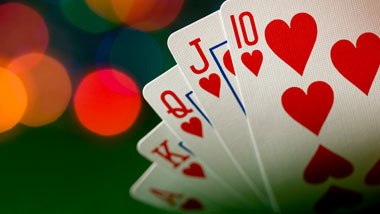Greek mythology has left an indelible mark on the cultural landscape, influencing literature, art, and popular media for centuries. From Homer’s epics to Renaissance paintings, these stories have been reinterpreted and adapted across generations. Today, Greek myths continue to serve as a fertile ground for creative expression, particularly in the realms of parody and gaming. Understanding how ancient stories shape modern entertainment can deepen our appreciation of both history and contemporary culture.
This article explores the profound ways in which Greek myths inspire modern parodies and video games, demonstrating their enduring relevance and educational value. By examining mythological archetypes, adaptation techniques, and innovative game design, we will uncover the timeless nature of these stories and their significance in shaping modern narratives.
- The Foundations of Greek Mythology as Cultural Archetypes
- From Ancient Stories to Modern Parodies
- Greek Myths as Inspiration for Contemporary Games
- Analyzing the Educational Value of Myth-Based Parodies and Games
- The Mechanics of Mythology in Modern Game Design
- Cultural and Educational Significance of Greek Myths in Modern Media
- Non-Obvious Perspectives: Deepening the Myth-Modern Connection
- Conclusion: The Continual Rebirth of Greek Myths in Modern Media
もくじ
- 1 The Foundations of Greek Mythology as Cultural Archetypes
- 2 From Ancient Stories to Modern Parodies
- 3 Greek Myths as Inspiration for Contemporary Games
- 4 Analyzing the Educational Value of Myth-Based Parodies and Games
- 5 The Mechanics of Mythology in Modern Game Design
- 6 Cultural and Educational Significance of Greek Myths in Modern Media
- 7 Non-Obvious Perspectives: Deepening the Myth-Modern Connection
- 8 Conclusion: The Continual Rebirth of Greek Myths in Modern Media
The Foundations of Greek Mythology as Cultural Archetypes
Greek mythology is built upon a rich tapestry of themes, characters, and stories that have served as archetypes in storytelling worldwide. Central figures include powerful gods like Zeus, Hera, and Poseidon; heroic mortals such as Heracles and Perseus; and mythical creatures like the Minotaur and Cerberus. These characters embody universal human traits—courage, hubris, wisdom, and greed—that continue to resonate today.
Moreover, Greek myths often convey moral lessons and philosophical ideas. For example, the story of Icarus warns against overambition, while the tale of Prometheus highlights themes of defiance and sacrifice. These narratives embed cultural values that influence modern storytelling, where archetypes like the hero, the trickster, or the mentor recur frequently, echoing their ancient origins.
| Mythological Archetype | Modern Equivalent | Representative Stories |
|---|---|---|
| Hero | Protagonist in video games like “God of War” | Heracles’ Twelve Labors, Odysseus’ adventures |
| Trickster | Loki in modern media or mischievous game characters | Hermes’ cunning, Prometheus’ defiance |
| Mentor | Wise guiding figures in games or stories | Chiron the centaur, Athena’s guidance to Odysseus |
From Ancient Stories to Modern Parodies
Parody serves as a vital tool in contemporary culture by humorously or critically reinterpreting classic myths. It often aims to entertain, but also to provide commentary on societal values or modern issues. Techniques include exaggeration of mythological traits, humorous reinterpretations, and satirical adaptations that highlight the universality of mythic themes.
A notable example is the animated series Hercules: The Legendary Journeys, which, while rooted in myth, often played with absurdity and modern humor. In digital media, parody videos on platforms like YouTube spoof key mythological figures, making ancient stories accessible and engaging for new audiences.
Modern entertainment frequently blends myth with humor, creating content that appeals across age groups. For example, comedic reinterpretations of the Greek gods—sometimes depicted as flawed or humorous—serve to humanize these divine figures and make their stories relatable. Such approaches demonstrate that mythological archetypes are flexible enough to be reimagined in ways that resonate today.
Greek Myths as Inspiration for Contemporary Games
Video games leverage mythological themes to craft immersive worlds and compelling narratives. Myth-inspired games often feature gods, monsters, and quests that mirror ancient stories while employing modern mechanics. This integration not only entertains but also educates players about mythic history in an engaging format.
A prime example is Le Zeus, which exemplifies how mythological elements can be embedded into game mechanics—such as the use of “clover multipliers x2–x20″—to mirror divine powers and mythical quests. This approach creates a layered experience where players explore mythic narratives through gameplay, often with features like special bonuses that evoke the powers of gods like Zeus or Hera.
Game mechanics frequently incorporate mythological characters and themes, such as divine interventions, mythical creatures, or heroic challenges, which serve to deepen storytelling and player engagement. For instance, some games use the concept of gods granting special abilities, akin to mythological intervention, to enhance gameplay strategy and excitement.
Analyzing the Educational Value of Myth-Based Parodies and Games
Modern adaptations rooted in Greek mythology serve as powerful educational tools. Parodies and games can make learning about ancient stories interactive and memorable. By engaging with mythological themes through humor or gameplay, learners develop a deeper understanding of cultural values, historical contexts, and literary archetypes.
Research indicates that interactive storytelling enhances retention and comprehension. For example, students exploring Greek myths through digital platforms show increased engagement and better recall of mythic narratives. Such tools bridge the gap between ancient history and modern education, making learning both fun and meaningful.
“When myth becomes part of interactive media, it transforms from distant history into a living, breathing part of contemporary culture.” — Dr. Maria Lopez, Mythology Educator
The Mechanics of Mythology in Modern Game Design
Incorporating mythological elements into game design involves more than thematic decoration; it influences core mechanics. For example, gods’ powers can be translated into special abilities, mythical quests into structured challenges, and divine relics into game items. This integration creates a cohesive narrative experience rooted in mythic symbolism.
Mathematical concepts also find a place within myth-inspired games. For instance, some slot machines or online games use prime numbers to structure paylines or bonus features. A game featuring 19 paylines—an example of a prime number—embodies the idea of divine perfection and mystery often associated with Greek deities. Such design choices not only enhance gameplay complexity but also subtly connect players to the mythic themes of order and chaos.
Timing strategies, such as launching new myth-inspired games on Wednesdays, often align with cultural or superstitious beliefs about midweek renewal and balance, enhancing marketing success. This approach demonstrates how understanding mythological symbolism can inform effective game development and release planning.
Cultural and Educational Significance of Greek Myths in Modern Media
Modern media plays a pivotal role in preserving and transforming ancient Greek stories. Parody and gaming introduce these myths to new generations, often reflecting contemporary values such as individualism, justice, or environmental concerns. This reinterpretation ensures that mythic narratives remain relevant and accessible.
Furthermore, Greek myths foster cultural literacy by providing foundational stories that inform Western literature, philosophy, and arts. As new adaptations emerge, they serve as bridges connecting ancient wisdom with modern societal issues, encouraging critical thinking and cultural awareness among audiences worldwide.
“Mythology is not just about the past; it is a mirror reflecting our present and guiding our future.” — Prof. Alexander Johnson
Non-Obvious Perspectives: Deepening the Myth-Modern Connection
Beyond overt storytelling, myth archetypes subtly influence modern branding and innovation. For example, tech companies often invoke mythic themes—like the Promethean act of bringing fire—to symbolize innovation and progress. Similarly, branding strategies may tap into archetypes such as the hero or the rebel to resonate emotionally with audiences.
Intriguingly, mathematical concepts like prime numbers also echo mythic symbolism—prime numbers are often associated with uniqueness and divine order. Some myth-inspired games utilize prime-numbered features, such as 19 paylines, to evoke a sense of mysticism and perfection rooted in ancient beliefs. This fusion of history, math, and myth demonstrates the layered complexity of modern cultural products.
Historical facts reveal that ancient civilizations, like Mesopotamia, brewed beer as early as 4,000 BCE—showing that myth and daily life intertwine historically. Such facts highlight the enduring influence of mythic and cultural traditions, which continue to shape our understanding of history and innovation.
Conclusion: The Continual Rebirth of Greek Myths in Modern Media
Greek myths remain a vital source of inspiration, education, and entertainment. Their adaptability allows them to be reinterpreted through parody, integrated into game mechanics, and embodied in modern storytelling. Such adaptations preserve ancient narratives while reflecting contemporary values and technological advances.
Looking ahead, the potential for Greek myths to evolve within digital media and interactive platforms remains vast. As creators continue to explore mythic themes, they foster a deeper appreciation of ancient stories and their relevance today. Embracing this ongoing rebirth enriches our cultural literacy and connects us with a shared human heritage.
For those interested in experiencing myth-inspired gaming firsthand, exploring platforms that incorporate mythic themes with innovative mechanics—such as clover multipliers x2–x20—can provide both entertainment and educational insights into the enduring power of Greek mythology.























